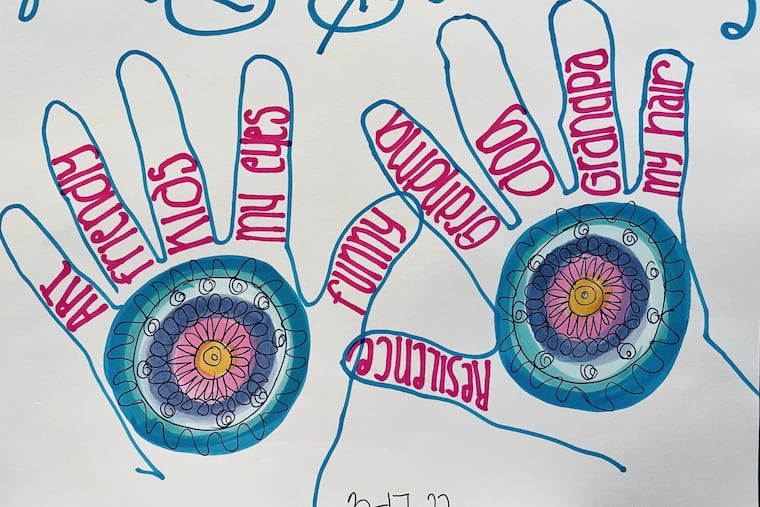Six gratitude practices to improve your happiness
There are many way to practice gratitude, and the best approach is the one that feels best to you.

Research shows that routinely expressing what we’re grateful for can boost mood, strengthen relationships, and improve health. One study even found that daily gratitude practice led people to exercise more and make fewer trips to the doctor’s office.
» READ MORE: Gratitude isn’t just polite. A Philly-born psychology movement shows it is a path to happiness.
There are many way to practice gratitude, and the best approach is the one that feels best to you.
Here are a few exercises you can try.
Three blessings
One of the most basic gratitude practices is called “Three Good Things.”
Once a day, a few times a week — however often you’d like — write down three good things that happened that day and why.
Doing the exercise, even for one week, made people happier, said James Pawelski, a professor of positive psychology at the University of Pennsylvania and co-author of Happy Together: Using the Science of Positive Psychology to Build Love That Lasts.
Journaling
For those who are looking for more structure in their gratitude practice, there are a variety of journals that can guide you with writing prompts. Some examples are the Five Minute Journal or The Happiness Project One-Sentence Journal.
Themes vary, but the premise of most is similar to that of the three blessings — making it a routine to think of the positive and express gratitude.
Writing alternatives
Writing in a journal isn’t for everyone, and that shouldn’t be a barrier to practicing gratitude, said George James, a licensed marriage and family therapist and chief innovation officer at Council for Relationships, a Philadelphia mental health nonprofit
If journaling isn’t for you, James recommends that you open a note on your phone and type up things you are grateful for or use the voice memo to record your gratitude. If you have a partner, perhaps make it a bedtime ritual to say to each other a few things you are grateful for.
“It doesn’t have to be written. There are multiple ways you can practice the same skill of gratitude,” he said.
James also recommends setting a reminder on your calendar or phone to practice. It works for his patients — and for him.
» READ MORE: Practicing gratitude with kids is as simple as eating M&Ms
Art
Linda Baker, an art therapist who works with youth at Princeton House Behavioral Health, found success in using art to express gratitude.
One of her exercises involves tracing her hands on a piece of paper and then writing in each finger something she is grateful for — an object, a person, a talent or quality about herself.
Senses
Another exercise Baker recommends deploys all five senses.
Think about the past week: What are you grateful for that you’ve seen, tasted, heard, done, or smelled?
As a visual artist, Baker said she often identifies new things to be grateful for by being mindful of all five senses.
“If I’m in this moment, using all my senses, then I can appreciate things that maybe I never noticed before,” she said.
» READ MORE: Write a thank you letter this holiday season. It could bring ‘tears of joy’ — to you and the recipient.
Think it, say it
Gratitude can also be incorporated in daily life outside of a specific routine.
Angela Duckworth, professor of psychology at the University of Pennsylvania, has a rule: If you think it, say it.
When she reads a novel, or a scientific paper that she enjoyed, she will email the author a short note of thanks. She will do the same when someone does something nice for her.
She recognizes that at first it might be a bit awkward. But it’s worth it.
“In my experience, there’s never been an occasion where gratitude wasn’t received with joy,” Duckworth said.
We all have people in our lives that we should have thanked but didn’t.